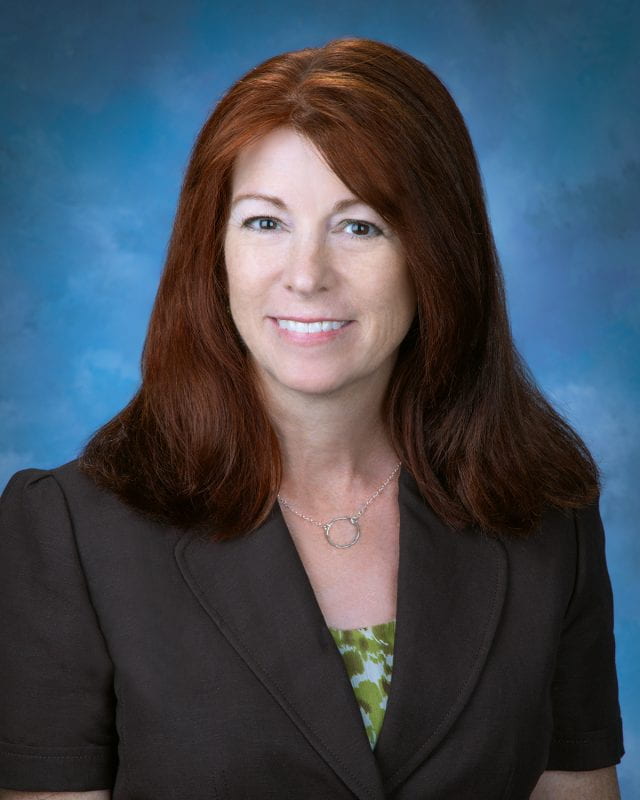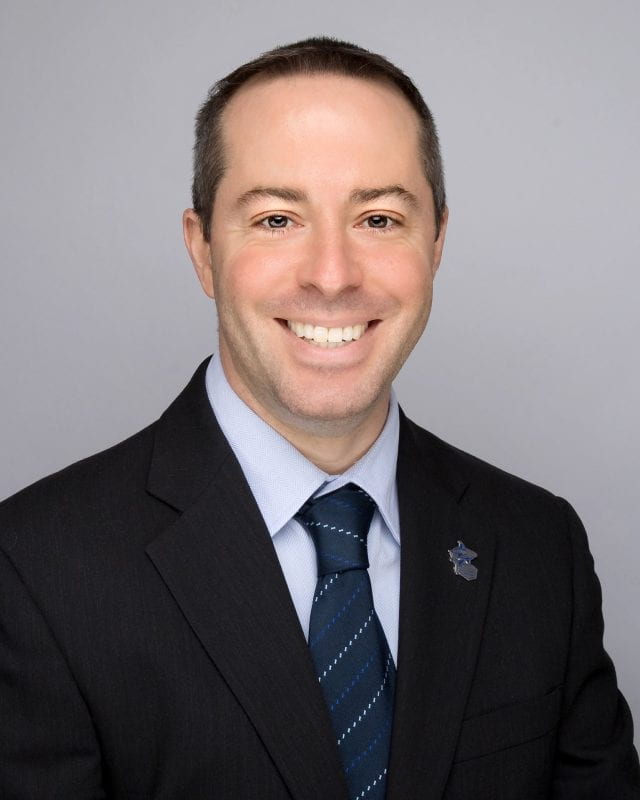Dooley Trust Awarding Projects Benefiting Individuals with Autism

The Robert E. Dooley Trust NSU Center for Autism Endowment Fund was set up to help fund and support NSU programs that benefit individuals with autism. All NSU faculty and staff were invited to apply for this funding. Below you will find the Dooley Trust Fund award winners from 2024 and 2023.
2024
Implementing the PLAY Project, a Parent-Mediated Intervention for Young Children with Autism Spectrum Disorder

PI: Nurit Sheinberg, Ed.D., Assistant Professor, College of Psychology
Contact: nurit@nova.edu
Research has consistently documented the benefits of early intervention with many intervention approaches available for families with various degrees of effectiveness. Recent meta-analysis on the efficacy of early intervention for children with ASD found that interventions in which families are trained to work daily on children’s skills seem to be the most promising in terms of positive child outcomes (Daniolou et al., 2022). An example of an evidence-based, caregiver-mediated intervention is the PLAY project (PLAY). PLAY is a developmental, relationship-based approach grounded on the theory that when dyadic interaction is contingent, reciprocal, and enjoyable, the child will progress through a series of increasingly functional developmental levels. PLAY is provided through a structured approach that includes coaching, modeling, and video feedback with the caregiver-child dyad.
The purpose of this project is to offer the PLAY project to families with children ages 1-5 with autism. PLAY will be offered to families that have children attending programs housed at NSU and the UM-NSU Center for Autism and Related Disorders (CARD) will offer the program to families in the community who do not have children with ASD enrolled in NSU academic programming. The goal is to provide services to a minimum of 20 caregiver-child dyads. Sessions will include coaching, modeling and video feedback on skills being targeted based on each child’s developmental profile. Families will participate in weekly coaching sessions lasting between 45-60 minutes for 12 weeks.
Increasing Autism Awareness and Knowledge in the Community

PI: Amrita Singh, Psy.D., Assistant Director/ Child Psychologist, Unicorn Foundation Developmental Assessment Clinic, College of Psychology
Contact: as1561@nova.edu
The Unicorn Children’s Foundation Developmental Assessment Clinic focuses on three areas of needs: assessments for the early identification of autism spectrum disorder (ASD) for underserved families, community outreach, and the training of future clinical and school psychologists. For community outreach, the Developmental Assessment Clinic has developed workshops to educate and assist persons in the community to better understand child development and help navigate the process of early identification of autism spectrum disorder. The clinic provides these community workshops at no cost in both Spanish and English.
The Dooley Trust funds will support an expanded program of free workshops to the community which will disseminate information about Developmental Assessment Clinic, which many parents have described as a “hidden gem” because they never heard about our clinic. The aim behind these community workshops is to reach as many families as possible.
These outreach workshops will be provided in person and on zoom to daycares, preschools, faith-based organizations, and family support organizations in Miami-Dade, Broward, and Palm Beach counties. In addition, this project supports outreach to healthcare providers (ABA companies, speech and language pathologists, occupational therapists) to explain the services we offer in order to help identify children 18 months to 7 years of age from underserved communities who need early intervention.
Autism Assessments for Young Children from Underserved Communities

PI: Sohani Char, Psy.D., Licensed Psychologist, Associate Director of the Unicorn Children’s Foundation Developmental Assessment Clinic, Assistant Clinical Professor, College of Psychology
Contact: sb1824@nova.edu
The Unicorn Children’s Foundation Developmental Assessment Clinic focuses on conducting assessments for the early identification of autism for underserved children, community outreach, and the training of future clinical and school psychologists. Currently, there is a very high demand for comprehensive diagnostic evaluations to help children with autism get access to therapies, such as applied behavior analysis (ABA), speech therapy, and occupational therapy. It is widely known that compared with White children, Black and Latinx children are typically diagnosed later and have increased difficulty in accessing services due to various reasons (e.g., shortage of specialists who accept their insurance, limited financial resources, long wait times). Our clinic conducts these evaluations in one day and at no cost for children from underserved communities. The evaluation we provide consists of a comprehensive intake with the parent, a cognitive test, adaptive skill testing, and an administration of the Autism Diagnostic Observation Schedule, Second Edition (ADOS-2), a gold standard measure that is needed for gaining an accurate diagnosis for autism. This allows families to gain comprehensive information on their child’s overall functioning to better assist them with accessing therapies and education services.
Typically, the Developmental Assessment Clinic has a 3-month waitlist, and our goal is to see families as soon as possible because we understand how crucial it is for children to begin receiving early intervention after diagnosis. The Dooley Trust funds will help the Developmental Assessment Clinic increase the number of quality, comprehensive diagnostic evaluations at no cost for children ages 18 months to 7 years of age from low-income families. These evaluations are conducted in one day, which requires a team with clinical expertise. Families have provided positive feedback about the advantages of completing assessments in one day versus 3 to 4 sessions. Evaluations provided by the Developmental Assessment Clinic will allow families to learn more about their child’s overall developmental functioning, clarify diagnoses, and determine which treatment approaches are recommended to address their child’s autism symptoms.
Sensory Saturdays 2024

PI: Bonnie Clearwater, Director and Chief Curator, NSU Art Museum Fort Lauderdale
Contact: bclearwater@moafl.org
NSU Art Museum Fort Lauderdale received funding from the Dooley Trust for a project called Sensory Saturdays, to provide specialized art education activities on four Saturday mornings before regular Museum hours to children on the autism spectrum during 2024. The expanded hours will enable the Museum’s Education team to ensure the Museum is a sensory friendly locale for this population. Museum exhibitions frequently contain multimedia presentations with loud volume and/or flashing lights, which can trigger negative reactions in children with autism. To accommodate this population, the Museum’s Education team will collaborate with its Curatorial Project Manager to identify quiet zones, make sure nearby lights are dimmed and speaker volumes are adjusted for exclusive Museum access by children with ASD and their caregivers. As recommended by UM-NSU CARD, soft seating, sensory activity kits, noise-cancelling headphones, weighted blankets and mats will be available for visiting children on the spectrum.
In sum, up to 25 children with ASD (ages 6-17) and their caregivers will be able to attend each Sensory Saturday event with the goal of providing fun, sensory-based workshop activities in a museum environment that help make Broward caregivers feel more supported, while the children feel a sense of comfort and belonging.
2023
PACT: Physical Activity Connections via Telehealth
 PI: Melissa M. Tovin, PT, Ph.D., Professor, Dr. Pallavi Patel College of Health Care Sciences
PI: Melissa M. Tovin, PT, Ph.D., Professor, Dr. Pallavi Patel College of Health Care Sciences
Contact: mtovin@nova.edu
Awareness campaigns and research have led to a significant increase in services and programs for young children with ASD; however, very few programs are specifically aimed at meeting the unique needs of adolescents and young adults. As this group transitions from childhood to adulthood, they face many social, physical and health challenges. At the same time, they find themselves exiting pediatric medical, developmental, and school-based services leaving them and their families struggling to navigate a complex system to find new providers and programs. This period of transition has been referred to as “Falling off the Services Cliff” in several publications/outlets. Physical Activity Connections via Telehealth (PACT) will provide guided physical activity instruction, using a peer-to-peer and small group format for social support and engagement. This service will be delivered virtually, and participants will receive a custom exercise program, coaching, and a “wellness kit” consisting of exercise resources and fitness tools. The proposed project will provide an accessible, safe, and expert guided physical activity program with a social component to adolescents and young adults with ASD (ages 16-22).
Supporting a Comprehensive College Support Program for Young Adults with Autism Spectrum Disorder

PI: Maribel Del Rio-Roberts, Psy.D., Associate Professor, Abraham S. Fischler College of Education & School of Criminal Justice
Contact: mdelrio@nova.edu
Nova Southeastern University currently offers the Access Plus Program for college students enrolled at NSU that are diagnosed with Autism Spectrum Disorder. These students are provided with comprehensive support services such as daily study hall support with peer mentors, social coaching, career development, advocacy and support with faculty and university departments, and psychoeducational groups among other services. Peer Mentors assist students with study skills, executive functioning such as planning, organization, and problem solving, as well as with self-advocacy skills. Although students with financial need were previously able to successfully enroll in the program through Florida Department of Vocational Rehabilitation financial assistance, this funding is no longer being provided and Dooley Trust funding was requested to assist students with covering the program fee. Participation in this program is vital to the success of many college students as it provides them with the necessary supports to ensure that they thrive during their time at NSU and ultimately transition into a career while being competitive within the workforce of their chosen field of study.
A Training Program to Support Faculty & Staff Working with Individuals with Autism Spectrum Disorder (ASD) in Higher Education

 PI: Tim Scala, Psy.D., Associate Professor, Abraham S. Fischler College of Education & School of Criminal Justice, Contact: tscala@nova.edu
PI: Tim Scala, Psy.D., Associate Professor, Abraham S. Fischler College of Education & School of Criminal Justice, Contact: tscala@nova.edu
PI: Maribel Del Rio-Roberts, Psy.D., Associate Professor, Abraham S. Fischler College of Education & School of Criminal Justice
Contact: mdelrio@nova.edu
It is essential that students diagnosed with Autism Spectrum Disorder successfully transition into a higher education setting and feel supported in their new environment. Although many individuals with ASD display academic and creative talents, they can also experience challenges when it comes to navigating social environments and in settings that require self-advocacy and problem-solving skills. Therefore, to ensure that students with ASD thrive in a higher education setting, it is crucial that faculty, support services staff, and others such as public safety staff understand the nature of ASD and some of the associated challenges. This program will provide comprehensive training to selected NSU staff who may encounter a student with ASD, so they can more effectively provide support. Through psychoeducation and immersive learning experiences by incorporating Mursion simulation activities, participants will gain a strong foundation in the nature of autism spectrum disorders and how to support students with ASD in the higher education setting. Program participants will become familiar with strategies to support students in the classroom, during advising sessions or other campus activities.